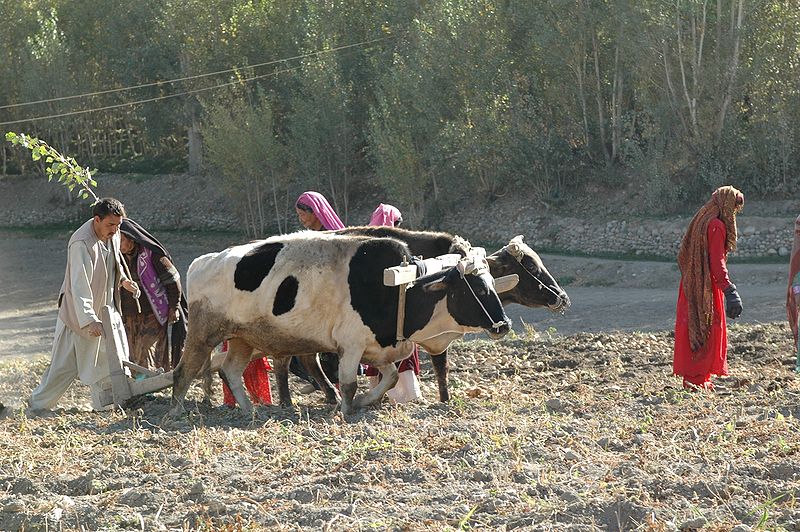Researchers with the Centre for Agricultural Research in the Dry Areas studied gender roles in rural Afghanistan and found that women participate less than men do. Women are more likely to participate in livestock-related activities than raising crops.
Srinivas Tavva and five other researchers conducted interviews on participation in seven villages from Nangarhar Province and seven in Baghlan Province. "Age, social stigmas, poverty and shortage of labour influence the gender division of labour, decision-making ability and participation in Afghanistan's farm and non-farm activities."
We must wonder if this is especially true of dry areas. "Dry areas cover 41% of the world’s land area and are home to
one-third of the global population," notes the ICARDA site. "About 16% of this population lives in chronic poverty, particularly
in marginal rainfed areas. The dry areas are challenged by rapid
population growth, frequent droughts, high climatic variability, land
degradation and desertification, and widespread poverty."
In Fear of Beauty and its imaginary village with a more temperate climate, women did most of the work tending diverse crops and boys tended sheep and goats. As we have noted before, there are not many thrillers that focus on farming. The plot would have been impossible without women's participation in everyday farming tasks. As shown by the photo from USAID, the scenario of women doing farmwork is feasible. And the photo, with no location noted, does not appear to be a dry area.
And Olivier De Schutter confirms the feasibility of Laashekoh, too, with an opinion essay, "The Feminization of Farming," in The New York Times. The UN special rapporteur on the right to food explains that more men are migrating from rural to urban areas, leaving women behind to run farming operations, too often as unpaid work. The essay also points to work being done in Bangladesh, as represented by Mita, the aid worker in Fear of Beauty. The novel strives to represent globalization's many conflicts in a tiny and imaginary village of Afghanistan.
De Schutter concludes: "Recognizing the burden that the feminization of global farming places on
women requires us to overturn longstanding gender norms that have kept
women down even as they feed more and more of the world."
Photo courtesy of Wikimedia Commons and USAID.
